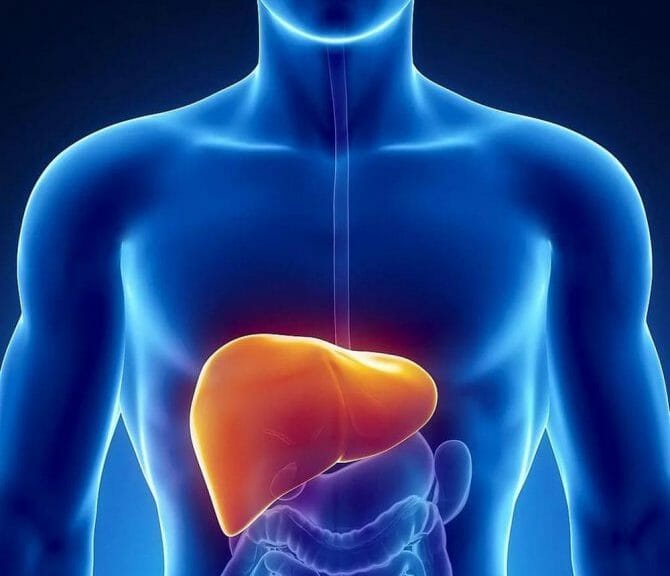

March 20, 2023

Содержание
Anabolic Agents: Benefits and Liver Impact
Anabolic agents have been popular for over 70 years. They help athletes quickly achieve their desired physique, improve strength, and attain their ideal body. However, these substances can lead to organ and system dysfunction. The strong impact of steroids on the liver has already been proven. For this reason, experts often recommend incorporating additional medications into steroid courses to help normalize liver function.
Steroids have an extensive list of side effects, well-known among athletes, one of the most significant being liver damage. However, this impact can be minimized with a properly calculated course and appropriate supportive measures.
Anabolics increase the activity of liver enzymes in the blood, which are produced in large quantities by liver cells. Excessive production causes increased permeability of hepatocyte membranes. However, studies have shown that enzyme levels only rise in 65% of cases.
Experts state that liver damage occurs during prolonged steroid courses when the liver becomes overloaded and cannot function properly. This effect is primarily associated with oral steroids. These drugs belong to the 17-alpha-alkylated group, which increases toxicity. However, for side effects to manifest, high doses must be taken over an extended period.
Some studies have indicated that steroids may lead to steroid-induced carcinoma. However, this outcome is only likely when pre-existing conditions are present. High-risk groups include patients with anemia, liver and kidney failure, or pituitary dysfunction.
To mitigate negative effects, liver support during a steroid course is essential. Special hepatoprotectors are prescribed to normalize the liver’s cellular composition and restore its function. Experienced doctors recommend undergoing health screenings and blood tests first. Markers such as ALT and AST can indicate whether necrosis is present.
If mild steroids are used, the liver can usually handle them without issues. Minor elevations in these markers suggest the liver can regenerate on its own, and medication may not be necessary. In such cases, the following rules should be observed:
These measures can help maintain normal ALT and AST levels and promote quick recovery of liver function.
If tests show elevated markers, hepatoprotectors should be taken. These over-the-counter drugs can help repair damaged cells more quickly. However, predicting when the liver will fully recover is impossible. Moreover, continuing a course of strong steroids may increase toxin levels.
Choosing the right medication for a steroid course can be challenging, so consulting a doctor is advisable. Popular options include the French drug Essentiale, an affordable and well-tolerated choice. Plant-based remedies like Carsil or Hepabene are also effective.
Ongoing research means there is no definitive scheme for protecting the liver during a steroid course, especially when it comes to potent anabolics. Specialists agree there is no hepatoprotector that guarantees complete recovery, but using these drugs can improve digestion, enhance appetite, and cleanse the liver of toxins without causing harm.
Experienced athletes understand the importance of post-cycle therapy (PCT). This involves not only drugs that restore testosterone production but also hepatoprotectors. While testosterone boosters are mandatory for maintaining results, hepatoprotectors are optional.
Medications for post-cycle liver recovery are divided into the following categories:
It’s important to note that rapid liver recovery after a steroid course is unlikely, but high-quality hepatoprotectors can help normalize this vital organ’s function.